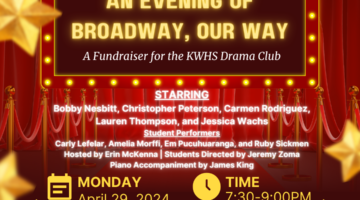BUSINESS LAW 101 / Laws Regarding Masks
By Albert L. Kelley
As many of my readers know, when I was 14 years old, I was in a car accident and received burns on roughly 50% of my body. When I got out of the burn unit, I had to wear what is called a pressure garment. This is a thick elastic material that is so tight it puts pressure on the burns and helps them heal better. Because of the severity of my burns, I had to wear the pressure garment over my entire body, including my head. I wore the outfit practically 24-hours a day- at home and at school. One evening in the late 1970’s, when I was 15-16 years old, I was sitting in a public park wearing my full outfit. Although most of it was hidden by my clothes, I could not hide the head covering. Two police officers approached me and asked me if I made a habit of wearing a mask in public. Clearly they thought I was up to no good, but I took the opportunity to explain my situation. They thanked me for explaining it to them and then warned me that I might not want to go into a convenience store dressed that way.
During the pandemic, when we had the mask requirement, I often thought of that moment. In the old western movies, right before the bad guy robs the bank, he would put a bandana over his face so he would not be recognized. In the original Point Break movie, the gang of robbers would put on masks of US Presidents to disguise their identity. Many criminals still try to hide their face before committing a crime, yet, we often catch them by other means. The thing is, masks can be used to disrupt law enforcement; but they can also be used for non-illicit, and even helpful or needed purposes.
The Florida Statutes recognizes this, but not in a clear way. Florida Statute 876 says no person shall wear a mask, hood, or other item where any portion of their face is so hidden, concealed, or covered as to conceal the identity of the wearer on any public property. It goes on to say that if you are over 16, you cannot wear a mask or hood or other item on any street, inside the house or building of another person or at a meeting or demonstration. Now, this law was first enacted in 1951 as an anti-Ku Klux Klan statute. And the legislature did add exemptions to the law, specifically 1) for traditional holiday costumes like Halloween; 2) for trades and employment where a mask is worn for the purpose of ensuring the physical safety of the wearer; 3) in theatrical productions, celebrations and masquerade balls; and 4) for emergency management drills and exercises.
The language of the law is pretty clear and strict, but it doesn’t fit with today’s needs. In 1981 (and modified in 1997), the legislature cleared this up. They passed a law that states: The above statutes are only applicable if the person is wearing the mask or hood; 1) with the intent to deprive any person or class of persons of the equal protection of the laws; 2) with the intent to injure, intimidate, or interfere with any person because of the person’s exercise of any right secured by federal, state; 3) with the intent to intimidate, threaten, abuse, or harass any other person; or 4) while she or he was engaged in conduct that could reasonably lead to the institution of a civil or criminal proceeding against her or him, with the intent of avoiding identification in such a proceeding.
While the added law was not passed in time to help me with the mask I had to wear for my burns, it does clarify that merely wearing a mask in public is no longer illegal.
[livemarket market_name="KONK Life LiveMarket" limit=3 category=“” show_signup=0 show_more=0]



No Comment